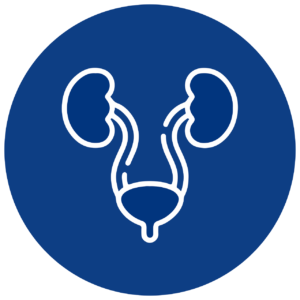Subtotal $0.00
Subscribe to out newsletter today to receive latest news administrate cost effective for tactical data.
2478 Street City Ohio 90255
Shopping cart
- Email:dmparvez25thssmc@gmail.com
- Govt Hospital Chapai Nawabganj Sadar
Subscribe to out newsletter today to receive latest news administrate cost effective for tactical data.
2478 Street City Ohio 90255

Urology care is a specialized branch of medicine that focuses on the diagnosis and treatment of conditions related to the urinary tract and the male reproductive system. This guide provides an in-depth look into what urology care entails, common treatments, reasons to choose our practice, and a personalized urology care plan. Additionally, we’ll answer some frequently asked questions to help you understand the importance of urological health.
Urology care involves the management of diseases of the kidneys, ureters, bladder, and urethra in both men and women. It also covers the male reproductive organs. Urologists are trained to address a wide range of issues, from urinary tract infections and kidney stones to prostate problems and male infertility.
Urology care encompasses a variety of treatments tailored to individual needs. Here are some common treatments provided by urologists:

Choosing the right urology care provider is crucial for effective treatment and recovery. Here’s why patients trust us with their urological health:
A personalized urology care plan is essential for effective treatment and management of urological conditions. Here’s what a typical care plan includes:
Certainly! Here are some common questions and answers for the FAQ section about urology:
A urologist specializes in diagnosing and treating conditions related to the urinary tract and male reproductive system. Common conditions include urinary tract infections (UTIs), kidney stones, bladder issues, prostate problems, erectile dysfunction, and male infertility.
You should consider seeing a urologist if you experience symptoms such as frequent urination, blood in your urine, severe pain in your lower abdomen or back, difficulty urinating, or any issues related to sexual health. Early consultation can help in effective diagnosis and treatment.
During your first visit, Dr. Masud Parvez will review your medical history, discuss your symptoms, and conduct a physical examination. Depending on your condition, further tests such as urine analysis, blood tests, or imaging studies may be recommended to accurately diagnose and develop a treatment plan.
Treatment for kidney stones depends on their size, location, and composition. Small stones may pass naturally with increased fluid intake, while larger stones might require medications, shock wave therapy (lithotripsy), or minimally invasive surgical procedures to remove or break them down. Dr.Masud Parvez will determine the best treatment option for you.